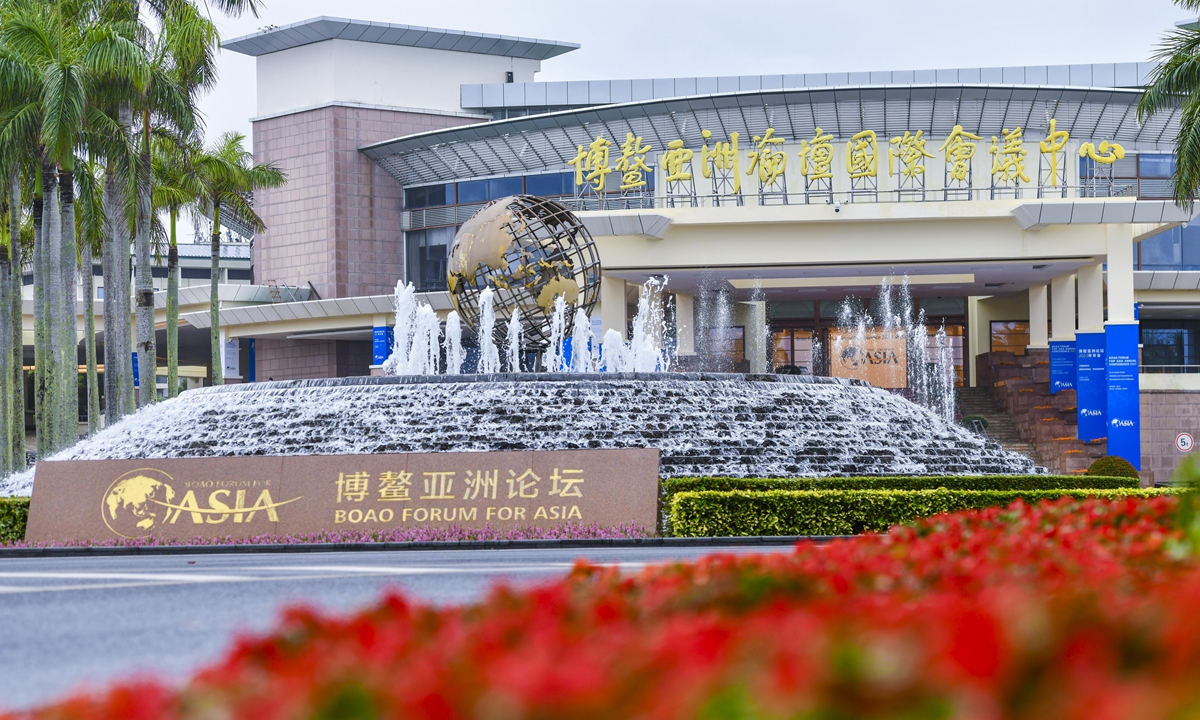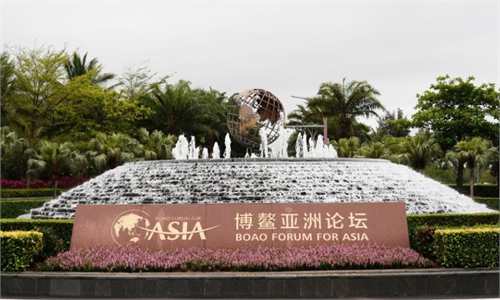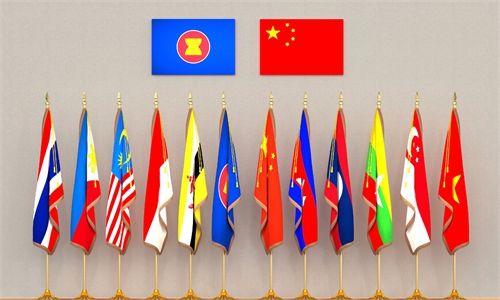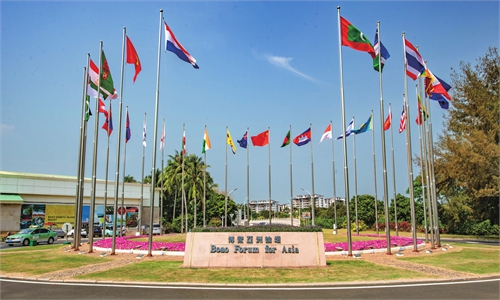Boao Forum kicks off in China’s Hainan, calling Asia a ‘bright spot’ in bleak global economy

Boao Forum for Asia. Photo:VCG
The Boao Forum for Asia (BFA) officially kicked off its annual conference in Boao, South China's Hainan Province on Tuesday, with experts saying Asia's accelerating economic recovery in 2023 will be a "bright spot" in an otherwise bleak economic landscape in the world, and global economic governance is entering into the "Asian moment."In two annual flagship reports on regional economy and sustainable development, the BFA also warned of "massive" development challenges for Asia amid multiple crises such as inflation, natural disasters, supply chain disruptions, as well as external vulnerabilities, urging multilateral cooperation to tackle these challenges.
In its annual report on Asia's economic outlook and integration, the BFA said the weighted real GDP growth rate of Asia in 2023 is likely to reach 4.5 percent, up from 4.2 percent in 2022, making the region a standout performer amid global economic slowdown.
"In 2023, in the context of a global slowdown and the risk of increasing fragmentation of globalization, Asia is expected to accelerate its pace of overall economic growth, continue to advance regional production, trade, investment and financial integration and cohesion, and seize the 'Asian moment' for global economic governance," the report said.
To deal with some critical issues facing Asia's development, the report called for "significant attention" to the resilience of Asian economies, reconfiguration of industrial chains, climate change responses and implementation of regional trade agreements.
In a separate report on sustainable development, the BFA also warned of profound challenges for development in Asia despite the region's buoyant economic outlook.
"Many low- and middle- income countries in Asia are encountering massive development challenges amid multiple crises, such as inflation, earthquakes, droughts, floods, supply chain disruptions, food and energy shortages and climate change," the report said, noting that such crises are compounded with external vulnerabilities, such as external debt problems.
The report called for multilateral cooperation and blended financing measures to tackle the challenges and fill in development funding gaps across Asia.
"Overall, we are very optimistic about Asia's economy," Zhang Yuyan, a senior fellow and director of Institute of World Economics and Politics at the Chinese Academy of Social Sciences, one of the authors of the BFA report on Asian economic outlook, said at a press conference on Tuesday in Boao.
The launch of the two flagship annual reports at a packed conference room in Boao marked the official start of the annual BFA gathering, which returns to its traditional offline format for the first time since the COVID-19 pandemic first emerged.
Li Baodong, secretary-general of the BFA, said at the press conference on Tuesday that the BFA annual meeting is focused on addressing two questions: "What is happening in the world? What we should do about it?" He noted a long list of crises, including military conflict, food and energy security and climate change.
That is why "our theme this year is: An Uncertain World: Solidarity and Cooperation for Development amid Challenges," Li said, "we are aiming to find certainty amid global uncertainty and promote development through cooperation."
The BFA Annual Conference 2023 will last from March 28 to 31 in Boao, where more than 2,000 delegates from 50 countries and regions will be in attendance. Several heads of governments, including Chinese Premier Li Qiang, Singapore's Prime Minister Lee Hsien Loong, Malaysia's Prime Minister Datuk Seri Anwar Ibrahim, Spain's Prime Minister Pedro Sanchez, Prime Minister of Cote d'Ivoire Patrick Achi, will address the forum, according to the Chinese Foreign Ministry on Monday.
Topping the agenda of the forum are discussions on how to preserve and promote regional economic integration as well as global peace and cooperation, as both Asia and the world are facing mounting economic and geopolitical risks and challenges amid an increasingly reckless, protectionist and confrontational diplomatic agenda spearheaded by the US and some of its allies.




